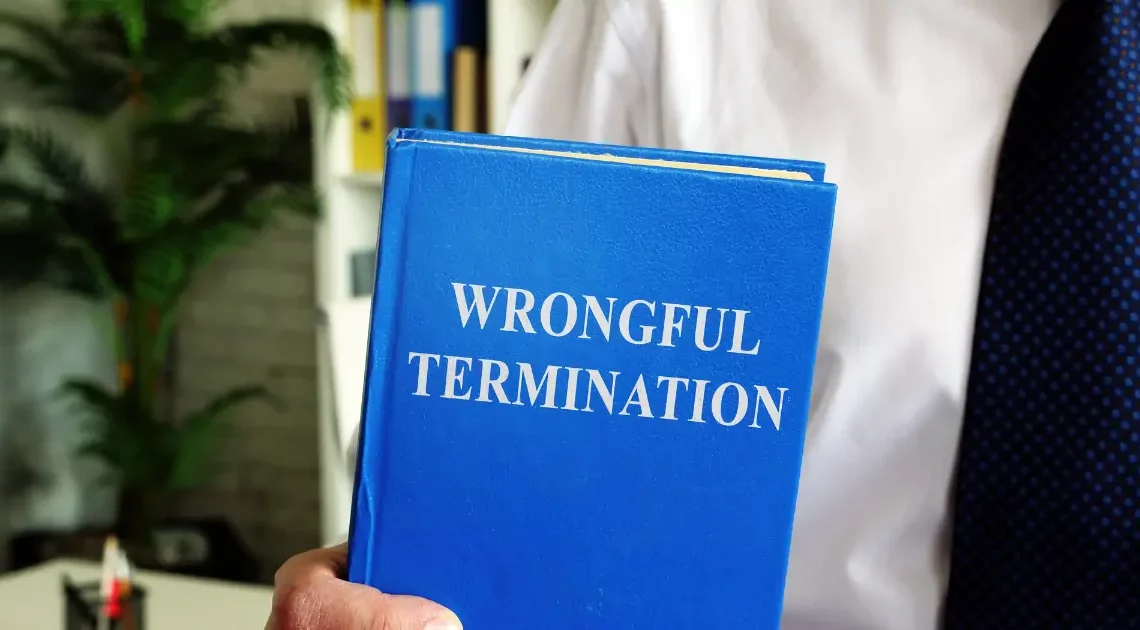
Navigating Wrongful Termination in Texas: Expert Employment Lawyer Guidance
March 9, 2024Wrongful termination in Texas, as in any other state, is a serious issue that can result in significant legal consequences for employers. Understanding your rights and legal options when faced with wrongful termination is crucial. This article provides guidance on navigating wrongful termination in Texas and seeking expert advice from employment lawyers.
Understanding Wrongful Termination in Texas
Wrongful termination in Texas occurs when an employer unlawfully ends an employment relationship with an employee. There are various factors that can contribute to a termination being considered wrongful under Texas employment law.
What constitutes wrongful termination in Texas?
Wrongful termination in Texas can be based on a variety of factors, such as discrimination, retaliation, or a breach of employment contract. It may also occur if an employee is fired for an unlawful reason, such as exercising their legal rights or reporting illegal activities within the company.
How can an employer wrongfully terminate an employee?
An employer can wrongfully terminate an employee by firing them for an unlawful reason, such as discrimination, retaliation, or in violation of an employment contract. It can also occur when an employer terminates an employee for exercising their legal rights, such as taking protected leave under the Family and Medical Leave Act (FMLA).
What are the legal rights of an employee facing wrongful termination?
Employees facing wrongful termination in Texas have legal rights that protect them from being unlawfully terminated by their employers. These rights include the right to seek legal redress for wrongful termination and to pursue compensation for the damages incurred as a result of the wrongful termination.
Proving Wrongful Termination
Proving wrongful termination in Texas requires the presentation of evidence to substantiate the claim of unlawful termination. This evidence plays a crucial role in establishing the grounds for a wrongful termination lawsuit and seeking legal remedies for the employee.
What evidence is needed to prove wrongful termination in Texas?
Evidence needed to prove wrongful termination in Texas may include employment contracts, performance reviews, witness statements, emails, and any documentation regarding the termination. This evidence helps in demonstrating that the termination was based on unlawful reasons, such as discrimination or retaliation.
How can an employment attorney help in proving wrongful termination?
An employment attorney can assist in gathering and analyzing evidence to support a wrongful termination claim. They can also provide legal guidance and representation throughout the process, increasing the chances of successfully proving wrongful termination and securing appropriate remedies.
What are the steps for filing a wrongful termination claim?
The steps for filing a wrongful termination claim in Texas include gathering evidence, consulting with an employment attorney, and filing a claim with the appropriate agency or court. It’s essential to adhere to the prescribed legal procedures and timelines when initiating a wrongful termination claim.
Retaliation and Unlawful Termination
Retaliation and unlawful termination are distinct legal issues that may arise in the context of wrongful termination. Understanding the laws and regulations pertaining to these matters is critical for employees facing wrongful termination.
What are the laws regarding retaliation in the context of wrongful termination?
Retaliation laws prohibit employers from retaliating against employees for engaging in protected activities, such as reporting discrimination or filing a complaint with the Equal Employment Opportunity Commission (EEOC). These laws aim to safeguard employees from reprisal for asserting their legal rights in the workplace.
How to determine if the termination was based on discrimination or retaliation?
Determining if a termination was based on discrimination or retaliation requires a thorough examination of the circumstances surrounding the termination. This involves assessing the timing of the termination, any prior complaints or protected activities by the employee, and any statements or actions by the employer indicating discriminatory or retaliatory motives.
What constitutes unlawful termination in Texas?
Unlawful termination in Texas encompasses terminations that violate state and federal employment laws. This includes terminations based on illegal discrimination, retaliation, breach of employment contract, or other violations of employee rights protected under Texas employment law.
Legal Guidance from Employment Lawyer
Seeking legal guidance from an experienced employment lawyer is crucial for navigating wrongful termination and pursuing legal remedies under Texas employment law. An employment lawyer can provide invaluable assistance in understanding your rights and options in the face of wrongful termination.
When should an individual seek legal advice from an employment lawyer?
An individual should seek legal advice from an employment lawyer as soon as they suspect wrongful termination or encounter any actions from their employer that may constitute wrongful termination. Timely legal advice can help in protecting the employee’s rights and preserving crucial evidence.
What role does an employment attorney play in a wrongful termination case?
An employment attorney plays a vital role in a wrongful termination case by offering legal counsel, conducting investigations, representing the employee in negotiations or legal proceedings, and advocating for the employee’s best interests throughout the legal process.
What considerations should be made before filing a wrongful termination lawsuit?
Before filing a wrongful termination lawsuit, it’s important to consider the potential legal remedies, the strength of the evidence, the applicable statutory limitations, and the potential outcomes of pursuing legal action. Consulting with an employment attorney can aid in making informed decisions about filing a lawsuit.
Filing a Wrongful Termination Claim
When pursuing a wrongful termination claim in Texas, understanding the process of filing a claim and the associated legal requirements is essential. Familiarizing oneself with the steps involved and the available remedies can facilitate a more effective pursuit of justice.
What steps are involved in filing a claim with the Texas Workforce Commission?
The process of filing a claim with the Texas Workforce Commission (TWC) involves completing the necessary forms, providing relevant documentation, and adhering to the TWC’s guidelines for filing a wrongful termination claim. This process typically initiates an investigation into the allegations of wrongful termination.
What is the statute of limitations for filing a wrongful termination claim in Texas?
In Texas, the statute of limitations for filing a wrongful termination claim dictates the timeframe within which an employee must initiate legal action against their employer for wrongful termination. Understanding this timeframe is critical for preserving one’s legal rights and pursuing appropriate legal recourse.
What are the potential remedies for a wrongfully terminated employee?
Potential remedies for a wrongfully terminated employee in Texas may include reinstatement, back pay, front pay, compensatory damages, punitive damages, and attorney’s fees. These remedies aim to provide redress for the harm suffered as a result of wrongful termination and to hold the employer accountable for their unlawful actions.
What is wrongful termination in Texas?
Wrongful termination in Texas refers to the illegal firing of an employee for reasons that are prohibited by law. This could include discrimination, retaliation, or violating public policy.
When should I contact a wrongful termination attorney?
You should contact a wrongful termination attorney as soon as you suspect that you have been wrongfully terminated. They can advise you on your legal options and help you navigate the complex employment laws.
What are some common reasons for wrongful termination in Texas?
Common reasons for wrongful termination in Texas include discrimination based on factors such as race, gender, age, or disability, retaliation for whistleblowing, or being fired for refusing to participate in illegal activities.
How do I prove that I was wrongfully terminated?
To prove wrongful termination, you may need to provide evidence such as emails, performance evaluations, witness statements, or documentation showing a sudden change in treatment leading up to your termination.
What are the steps involved in suing for wrongful termination in Texas?
The steps involved in suing for wrongful termination in Texas typically include filing a complaint with the Texas Workforce Commission (TWC), gathering evidence to support your claim, and possibly engaging in mediation or litigation with the help of a wrongful termination lawyer.
What kind of damages can I seek in wrongful termination cases?
Damages in wrongful termination cases can vary but may include back pay, front pay, emotional distress damages, punitive damages, and attorney fees. The specific damages you can seek will depend on the circumstances of your case.
How long do I have to file a wrongful termination claim in Texas?
In Texas, the statute of limitations for filing a wrongful termination claim is generally 180 days from the date of termination. It’s important to act promptly to ensure your claim is filed within the required timeframe.
Conclusion
When it comes to the termination of an employee, there are various factors to consider. In Texas, as an “employment at-will” state, a wrongful termination may occur if an employee is fired for an unlawful reason, such as employment discrimination based on age, which is protected under federal laws like the Age Discrimination in Employment Act. If an employee believes they have been wrongfully terminated in Texas, they must act within the statute of limitations, which is often 180 days. Sometimes, the termination may be considered wrongful if the law firm fires an employee for reasons based on discrimination or if the employment was “constructively” terminated, meaning the working conditions were made unbearable. Understanding the reason for the termination is crucial in determining whether the employee’s termination was within the bounds of the law.


